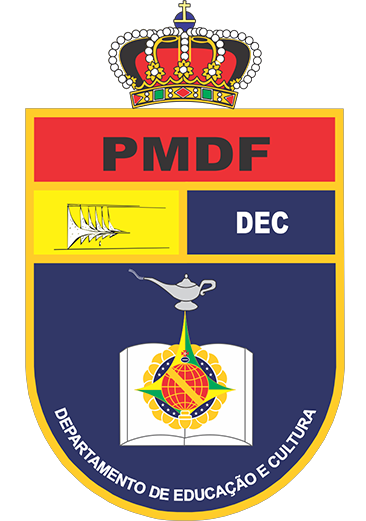A CRITICAL ANALYSIS ON DRUG USE AND PSYCHIATRIC DIAGNOSIS
DOI:
https://doi.org/10.59633/2316-8765.2024.345Keywords:
Uso abusivo de drogas, Ratolândia, DSMAbstract
The present work originates from a critical question regarding traditional and recent theories about the abuse of narcotic substances. Given this, we try to go through the premises adopted from the dopamine theory and the reward system, critically exposing some studies on its total veracity. The role of drug users in contemporary times as a determinant of a neurological system, which causes chemical dependency, is questioned. The notion of a new panorama of the theme of drugs is developed, considering the various vicissitudes regarding the infinity of issues related to drug use, understanding through scientific research that, human behavior and the singularity of these people's lives speak much more about the hypothesis of drug abuse than the descriptive and limited justification of the Diagnostic and Statistical Manual of Mental Disorders, or DSM, for the diagnosis of Substance-Related Disorders. It also seeks to defend the idea that a small portion of the population had a real problem with substance use. Finally, two clinical cases are presented, experienced in the mandatory stage to support the theoretical hypothesis developed throughout the work.
References
ALEXANDER B.K., COAMBS R.B.; HADAWAY, F. P. The effect of housing and gender on morphine self-administration in rats, Psychopharmacology, ed.58, 1978.
AMERICAN PSYCHIATRIC ASSOCIATION. Diagnostic and Statistical Manual of Men-tal Disorders, Fifth Edition (DSM-V). Arlington, VA: American Psychiatric Association, 2013.
ANTHONY, J.C.; WARNER, L.A.; KESSLER, R.C. Comparative epidemiology of depen-dence on tobacco, alcohol, controlled substances, and inhalants: basic findings from the Natio-nal Comorbidity Survey. Experimental and Clinical Psychopharmacology. Ed.2, 1994.
CHAUVET, C. et al. Effects of environmental enrichment on the incubation of cocaine craving. Neuropharmacology, n.63, 2012. https://doi.org/10.1016/j.neuropharm.2012.05.014
CHAUVET, C. et al., “Effects of environmental enrichment on the incubation of cocaine craving”, Neuropharmacology, n.63, 2012, p.635-4.
D.J. Stairs, E.D. Klein e M.T. Bardo, “Effects of environmental Pharmacology enrichment on extinction and reinstatement of amphetamine self-administration and sucrose-main-tained responding”, Behavioural Pharmacology, n.17,2006,p-597-604.
HADAWAY, P. F. et al. The effect of housing and gender on preference for morphinesucrose solutions in rats. Psychopharmacology (Berl), n. 66, 1979, p.87-91. https://doi.org/10.1007/BF00431995
HART, Carl. Um preço muito alto: a jornada de um neurocientista que desafia nossa visão sobre as drogas. 1 ed. Rio de Janeiro: Zahar, 2014.
HECHTMAN, L.; GREENFIELD, B. Long-term use of stimulants in children with attention déficit hyperactivity disorder: safety, efficacy, and long-term outcome. Paediatric Drugs, vol.5, n.12, 2003, p.787-94.
KASIR, C.; MELLOR, G.; HART, C.; GERHARDT, G. Nicotine effects on dopamine clea-rance in rat nucleus accumbens. Journal of Neurochemistry, n.19, 1995. https://doi.org/10.1016/0278-5846(94)00111-T
KOOB, G.F. Drugs of abuse: Anatomy, pharmacology and function of reward pathways. Trends Pharmacological Sciences, n.13, p.177-84, 1992.
OLDS, J.; MILNER, P. Positive reinforcement produced by electrical stimulation of the septal area and other regions of rat brain, Journal of Comparative and Physiological Psychology,n.46,1954, p.419-27, 1954.
PUHL, MC., et al. “Environmental enrichment on the incubation of cocaine self-administration in adult male rats, but does not eliminate avoidance of a drug-associated saccharin cue”, Beha-vioural Pharmacology, n.23, p-43-53, 2012.
STAIRS, D.; KLEIN, ED; BARDO, MT.; Effects of environmental enrichment on extinction and reinstatement of amphetamine self-administration and sucrose-maintained responding. Behavioural Pharmacology, 17(7), 597–604. 2006. https:///doi/10.1097/01.fbp.0000236271.72300.0e
WARNER, L.A. et al. Prevalence and correlates of drug use and dependence in the United States: Results from the National Comorbidity Survey. Archives o f General Psychiatry, v.52, n.3, p.219-29, 1994.
WISE, R.A. The neurobiology of craving: implications for the understanding and treatment of addiction. Journal of Abnormal Psychology, 97(2), 118–132. 1988. https://doi.apa.org/doi/10.1037/0021-843X.97.2.118
Downloads
Published
License
Copyright (c) 2024 Revista Ciência & Polícia

This work is licensed under a Creative Commons Attribution 4.0 International License.
Este artigo está licenciado sob uma Licença Creative Commons. Com essa licença você pode compartilhar, adaptar, para qualquer fim, desde que atribua a autoria da obra, forneça um link para a licença, e indicar se foram feitas alterações.









